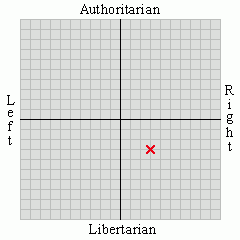- Low-salt and low-fat foods should be sold more cheaply than their unhealthy counterparts, through the use of subsidies if necessary;
- Advertising of 'unhealthy' foods should be banned until after 9pm and planning laws should be used to restrict the number of fast food outlets, especially near schools;
- The Common Agricultural Policy should focus more on public health, ensuring farmers are paid to produce 'healthier' foods;
- Action should also be taken to introduce a “traffic light” food labelling system, even though the European Parliament recently voted against this;
- Local authorities must act to encourage walking and cycling and public sector caterers must provide healthier meals;
- All lobbying of the Government and its agencies by the food and drink industry should be fully disclosed.
Let me try and explain simply. Anything sweet is made from a sugar, and starch is merely a complex sugar or polysaccharide.which breaks down into sugars as it passes through the digestive system I learned that in Junior High. It's easy to prove. Take a piece of starchy food, a piece of bread for example, and chew it for a couple of minutes. As your saliva begins the process of breaking down the bread it will begin to taste sweet. That sweetness is the starches beginning to break down into their component sugars as the long chain polysaccharides are attacked by the Salivary Amylase in your mouth. Bread, Potatoes and Pasta are packed with starches. Potatoes being mainly Starch, and Pasta, being made from Durum Wheat, is also packed with starch. What are crisps and fries made out of? Bingo! Got it in one. Potatoes. Full of Carbohydrates in the form of sugars and starches. Which, claims Mr Taubes, particularly refined Carbohydrates like white bread and pasta, raise insulin levels, promoting the storage of fat. Zing! Cue an 'obesity epidemic'.
From personal experience I find that cutting out the carbs make the excess pounds simply melt away with a little healthy exercise. No morning bowl of cereal, no added sugar, no 'convenience' foods. This may mean Mr Kelloggs and Messrs Tate & Lyle shareholders find their holdings devalued, but so what? I'm also pretty sure that too little salt in the diet has a significant risk factor, especially if you have been sweating a lot, and / or passing a lot of fluids. Why else are salt tablets recommended under those circumstances to help alleviate muscle cramps? Unless you've got kidney problems you should excrete all the excess salt anyway, and the amounts needed to harm you are a whole lot higher than the 5 grammes a day that is recommended..
So if what Mr Taubes says is true, then butties, pasta and spuds should all attract the proposed surcharges, not because of their fat content, but because of the starch. The same for 'low-fat' or 'healthy' options packed with starches as filler to replace the fat. Ergo; cheaper steaks, eggs, milk, cheeses, as under the NICE recommendations, all would attract extra production subsidies. As an aside this would also mean subsidies for cheaper non starchy vegetables like sprouts and cabbage, but then you can't have everything. I always stir fry them with garlic and chilli anyway.
The only thing I'd agree with on the above list is that all lobbying by food and drug companies should be banned, or at the very least put in the public domain. This to include any organisation in receipt of monies from government or their agencies. In other words, fake charities who can't exist solely on the largesse of the general public.
Sounds good to me.











No comments:
Post a Comment